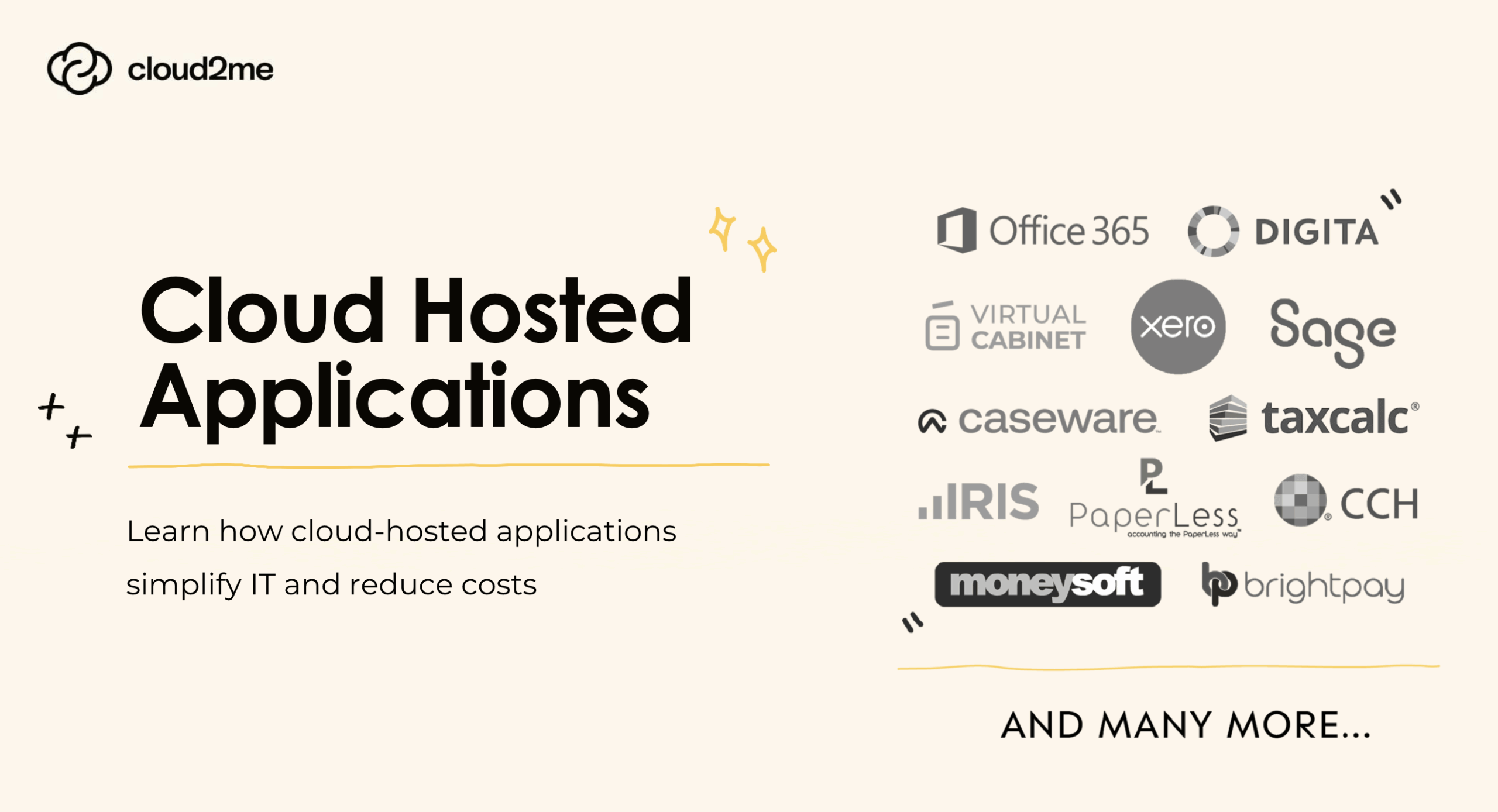If you’re running a business in 2025, chances are you’re juggling a bunch of apps to keep things ticking. Accounting software, client portals, project trackers, file sharing tools – all vital, all annoying to maintain when they’re scattered across different devices and physical servers.
That’s where cloud-hosted applications come in. They’re not new, but they are quietly revolutionising how businesses simplify, secure, and scale their everyday workflows – especially for SMEs who don’t want to play IT support on the side. It’s all made possible by advances in cloud computing, where virtual resources replace the need for clunky infrastructure.
Here’s how they work and why they’re worth considering.
Key Takeaways
- Cloud-hosted applications work across any operating system, so you’re not tied to Windows, Mac, or anything in between.
- Hosting your apps on a virtual private server gives you more control and security than typical shared solutions.
- Unlike basic web hosting, these apps are optimised for performance and tailored to your business needs.
- Everything runs through a secure, scalable cloud network, with smart routing and load management.
- Because the apps live on remote servers, you can access them from anywhere – without worrying about downtime or hardware failure.
- You’ll only use the storage space and computing power you need and scale when you don’t.
So, What Exactly Are Cloud-Hosted Applications?
In plain English, these are cloud applications that don’t live on your laptop or a dusty single server in the office. They live in the cloud (on virtual machines managed by a cloud provider) and you access them securely via your internet connection.
From accounting and payroll to client comms and scheduling, cloud-hosted applications remove the need for local installs and give your team consistent access, wherever they’re working from.
Examples include:
- Tools like Sage, Xero, and QuickBooks
- CRMs like HubSpot or Salesforce
- Sector-specific software (accountancy, legal, property)
These applications often run in cloud environments supported by cloud hosting services, which handle everything from patching to security measures to uptime.
Why Do They Actually Help?
1. You’re Not Glued to the Office
Remote working? Hybrid setup? Need to log in from your phone while dodging a coffee spill? Sorted. Cloud services let you work from anywhere without being tied to dedicated resources.
2. No More Manual Updates
Nobody misses the “update now or delay 4 hours” message. With software as a service tools, updates happen behind the scenes. Less faff = fewer problems.
3. They Grow With You
Need to add 3 new users before payroll Friday? Easy. Cloud hosting work models scale as you go without provisioning extra hardware.
4. You Don’t Need Servers That Hum Like a Fridge
Moving away from on-site setups cuts cost, clutter, and the energy-hungry legacy of traditional hosting.
5. Security’s Baked In
Cloud hosting systems handle encryption, secure sockets layers, and access management for data security and service availability with every login.
How to Use Cloud-Hosted Applications in Your Business
Getting started with cloud-hosted applications doesn’t require a technical background, just a clear sense of what tools your team relies on. Here’s a quick step-by-step to help you make the switch:
- List the apps your team uses daily – From accounting to project management, gather everything currently hosted on devices or local servers.
- Check compatibility with the cloud – Most mainstream apps already have cloud-ready versions. For legacy software, Cloud2Me can host them in a custom virtual environment.
- Choose a cloud provider – Opt for one like Cloud2Me that understands SME needs and handles migration, support, and UK compliance.
- Set up user access and permissions – Grant staff access based on roles, and ensure security settings are configured properly from day one.
- Train your team (briefly) – If the platform is intuitive (spoiler: ours is), you’ll only need a quick run-through before people are confident logging in and cracking on.
From there, you’re free to run your apps with none of the usual IT stress – and all the flexibility of a secure cloud-based setup.
Who Should Be Using These?
Cloud-hosted applications make sense for businesses that:
- Are done with dedicated hosting and ready for more scalable options like vps hosting and shared hosting
- Operate across multiple offices or home setups
- Want out of the managing servers trap
- Require secure access for multiple users
Cloud-Hosted Applications vs. SaaS: What’s the Difference?
While cloud-hosted applications and software as a service (SaaS) sound similar, they serve different business needs – and knowing which one fits yours best can save a lot of IT headaches.
Cloud-Hosted Applications:
- Your apps are installed on a virtual private server managed by a provider
- You maintain control over the app environment and configurations
- Ideal for businesses running legacy or bespoke software
SaaS Applications:
- Fully managed by a third-party vendor (e.g. Xero, Salesforce)
- No access to the back-end or infrastructure
- Best for businesses using standardised tools that don’t need customisation
When to Choose Cloud Hosting vs. SaaS?
- Go for cloud hosting if your software isn’t SaaS-ready or needs custom configuration.
- Choose SaaS if you’re happy to use off-the-shelf functionality and don’t need advanced control.
Deployment Models & Business Continuity
Downtime shouldn’t derail your team. With everything stored in the cloud, data storage is automated and recoverable. Your business keeps running even if your laptop doesn’t.
Cloud infrastructure powered by cloud hosting providers ensures resilience, thanks to load balancing and distributed resources and not one, singular overloaded dedicated server.Whether you’re working on Google Cloud, a private cloud, or a hosted stack, the flexibility and failover protection built into today’s deployment model options make business continuity a breeze.
Why Accountants Love Cloud-Hosted Apps
Accountancy firms are reaping the benefits of cloud-hosted applications. From running legacy software like IRIS or CCH to managing secure records, accountants need tools that run reliably and scale easily.
Cloud2Me specialises in supporting the exact software accountants use, hosted on multiple virtual servers designed for peak performance and compliance.
Cloud2Me’s Private Cloud Advantage
Moving apps to the cloud can sometimes feel like a pain. That’s why Cloud2Me doesn’t just “host” your apps – we support the setup, smoothing out all the messy bits.
We work with UK businesses in accountancy, professional services, and beyond to:
- Set up cloud hosted environments tailored to your app stack
- Migrate from physical servers to virtual servers with zero disruption
- Provide UK-based, human support and no endless chatbot loops.
We’re a service provider and then some…your partner in building smarter, more flexible IT.
Final Word
You don’t need enterprise-level IT to benefit from modern cloud technology. And you definitely don’t need to be juggling apps across multiple servers and desktops.
Cloud-hosted applications offer the agility of pay as you go pricing, the control of bespoke support, and the performance of true computing resources designed to scale.
Want to see how much easier it could be? Book a consultation and we’ll show you what cloud-hosted really looks like when it’s done right.

